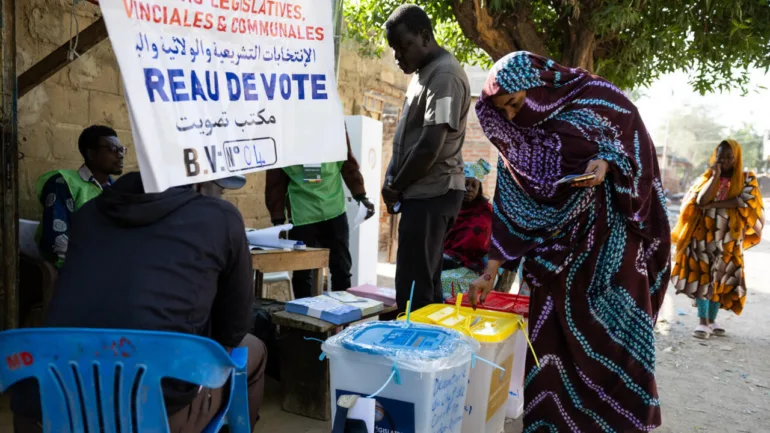Chad voted in a general election on Sunday, with the government portraying it as a crucial step towards ending military rule.
However, low voter turnout was anticipated after opposition groups called for a nationwide boycott.
Midday figures from the elections management agency ANGE indicated a turnout of just 38%, with citizens choosing a new parliament, provincial assemblies, and local councils. Election officials in the area where the president’s family and ruling elites reside attributed voter apathy to “cold weather.”
Opposition parties, however, urged Chad’s eight million voters to shun the election, claiming that the outcome had already been decided. “The overwhelming majority of people have stayed at home following our call,” said Succes Masra, leader of the opposition Transformers party.
The boycott allowed candidates aligned with President Mahamat Idriss Deby Itno—who took power via military means in 2021 and was later legitimized in a controversial May presidential election—to dominate the race.
Deby, who posted a message on Facebook urging citizens to vote and shared images of himself casting his ballot, called the election a “historic day.”
Despite this, many citizens expressed skepticism about the process. “There’s no real voting in Chad,” said 28-year-old Herve Natouingan, who lost his construction job and now drives a motorcycle taxi. “It’s pointless,” he added. Meanwhile, 39-year-old Patrice Lumumba Deoumoundou, an unemployed voter, expressed hope for change, citing the need for more jobs, lower prices, and greater justice and equality.
In line with previous elections, soldiers, police officers, and nomads cast their ballots on Saturday due to logistical reasons. The elections management body reported a “record turnout,” with 72% participation from the military and 54% from the nomadic population, who raised concerns over living conditions exacerbated by climate change and violent clashes with sedentary farmers.
As of the afternoon, around 100 foreign election observers were monitoring the process. The opposition Democratic Party of the Chadian People (PDPT) raised concerns over alleged irregularities, claiming that more than a thousand ballots intended for the Bongor sub-prefecture had gone missing.
The election occurs amidst ongoing security concerns, including attacks by Boko Haram in the Lake Chad region and tensions over Chad’s involvement in neighboring Sudan’s conflict.
The government has framed these elections as the final stage of Chad’s transition to democracy, though opposition critics remain skeptical, citing the undemocratic legacy of Deby’s rise to power after his father’s death in 2021.
AFP


